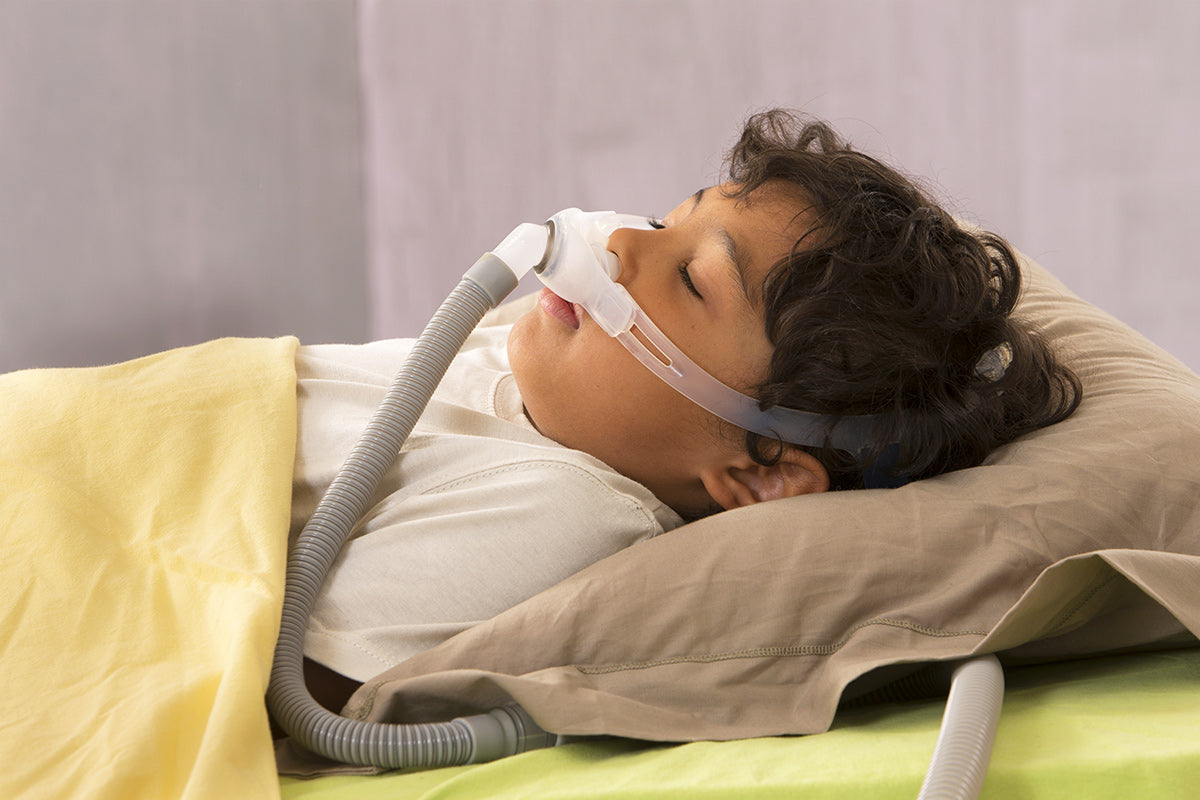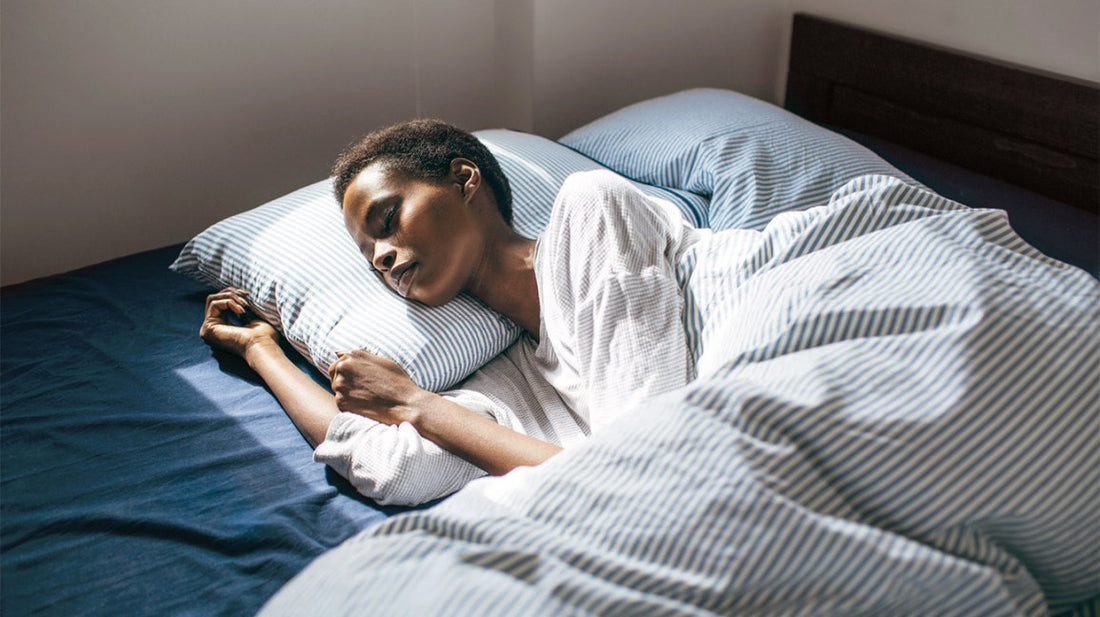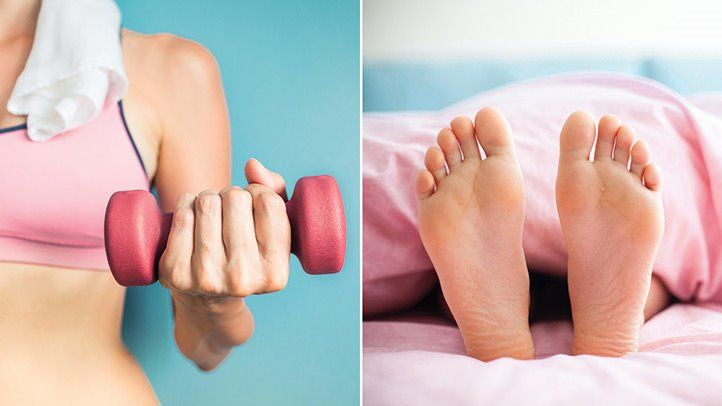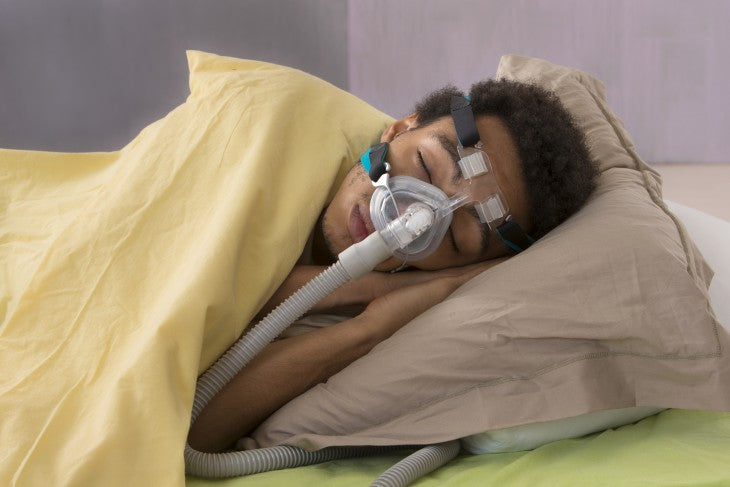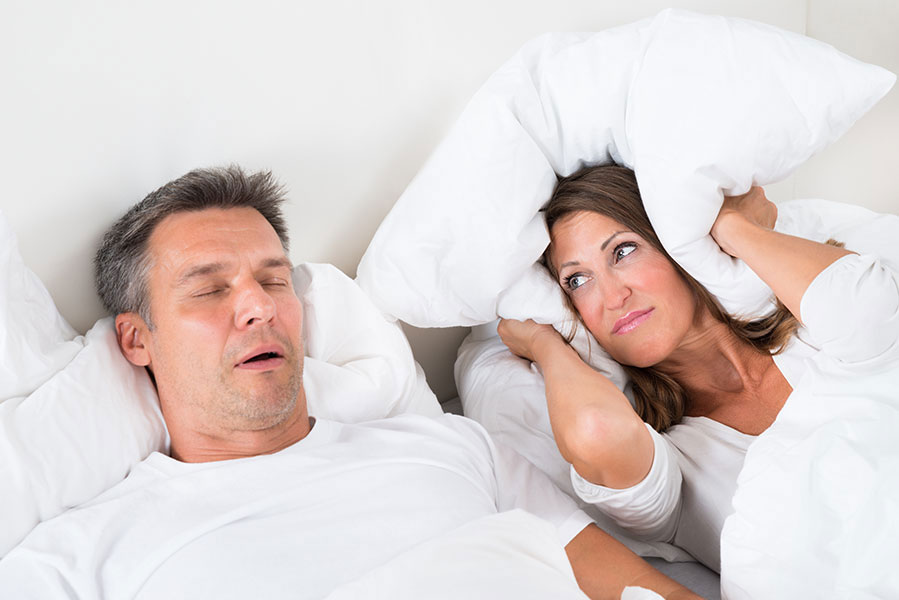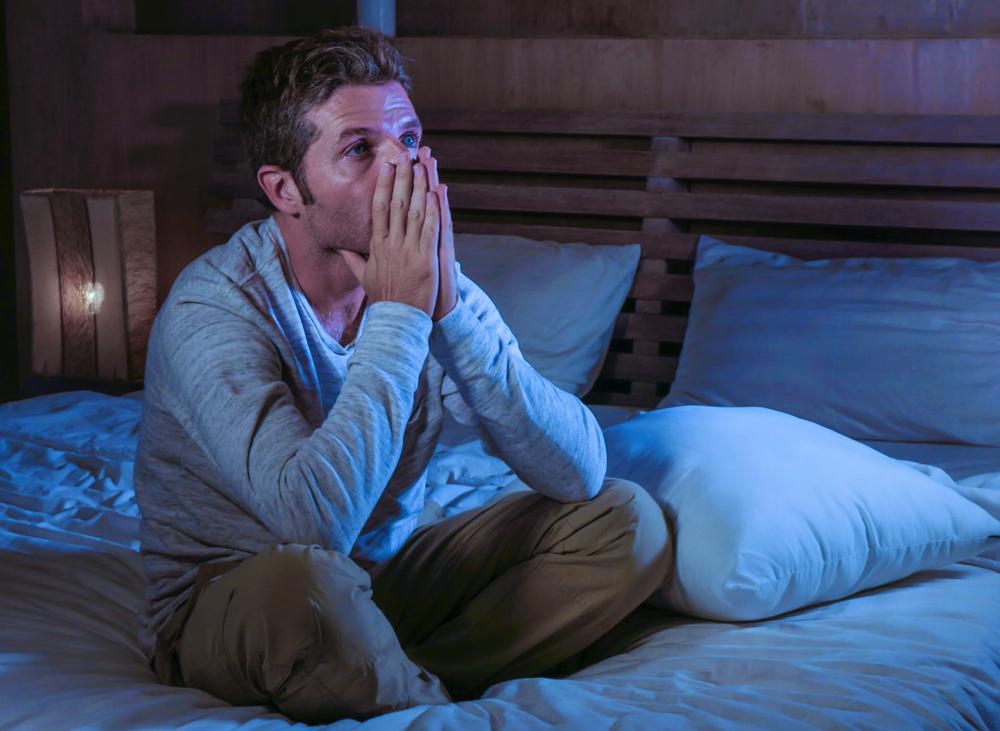News
How the Pandemic May Have Affected Your Sleep
wp:paragraph It’s been almost a year and a half since the Covid-19 pandemic turned the world upside down. In that time, you may have noticed that your sleeping habits may be a lot different these days than they were 18 months ago which is the case for many people, whether they realize this or not. /wp:paragraph wp:paragraph If you find that your sleep habits have changed under the different circumstances, that is fine, as long as you are being smart about it. Here are just a few of the top ways people have changed their sleeping habits to align with the pandemic circumstances. /wp:paragraph wp:paragraph Different Bedtimes /wp:paragraph wp:paragraph You may have found yourself going to bed later than you normally would, and possibly even sleeping in more often. If you are no longer commuting to work and finding yourself at home more often then, this is fine. There is nothing wrong with adjusting your sleep schedule under a change in circumstances, but make sure you are still relatively consistent with the time you go to bed and wake up. /wp:paragraph wp:paragraph Using Sleep Supplements /wp:paragraph wp:paragraph More and more people are relying on over-the-counter sleep supplements, like melatonin, to help them fall asleep. While taking melatonin once in a while is generally okay, it is best not to make this a long-term daily occurrence. It is important to speak to your doctor and get help if you are struggling with falling and staying asleep. /wp:paragraph wp:paragraph Dreams and Nightmares /wp:paragraph wp:paragraph The stress and uncertainty of the pandemic have been causing people to have more vivid dreams and nightmares than they might have had before. Of course, bad dreams happen to everyone now and then, but if this becoming a regular occurrence and negatively affecting your ability to get a good night’s sleep, then it’s time to get help. /wp:paragraph wp:paragraph Increased Screen Time /wp:paragraph wp:paragraph Scrolling your device to find out the latest pandemic news or communicating with loved ones during the lockdowns means more time in front of a screen these days, but don’t overdo it. Too much screen time can negatively affect your sleep habits and overall physical and mental health. It is important to find activities to do that don’t involve screens. /wp:paragraph
about How the Pandemic May Have Affected Your SleepIs Sleep Apnea Hurting your Relationship?
Having sleep apnea doesn’t just affect your health and daytime function. Did you know that sleep apnea can have a big impact on your romantic relationships? Don’t let sleep apnea tear your relationship apart! It is actually quite common for couples to experience tension in the relationship because of sleeping issues, and untreated sleep apnea has been known to lead to many problems in the relationship. Snoring is a very common symptom of sleep apnea that may be interfering with your partner’s ability to get a good night’s sleep. You may also find that you wake up many times throughout the night as a result of sleep apnea episodes, which could also disturb your partner’s sleep. Although it may seem discouraging, there are ways to fix this. A bad night’s sleep for either of you could lead to poor concentration and sleepiness during the daytime and could lead to fighting, resentment, hostility, and a lower desire for intimacy. While treating your sleep apnea is essential, it is important to take your partner’s needs into account as well, they deserve a good night’s sleep too! A few tips for sleep apnea patients to improve their relationship; First of all, communication is key in any relationship. Lashing out at each other when you are both overtired will not help to improve your relationship in any way. If you think you have sleep apnea, or if you think your partner may be experiencing symptoms, it is important to have a conversation about these issues and seek help from your doctor if needed. If you or your partner need to sleep in another room temporarily to sleep better, there is no shame in that. That way both of you can wake up feeling well-rested. If you do sleep in the same room together, don’t rule out the use of an earplug or a white noise machine. Finally, be sure to stick to your CPAP treatment! While the CPAP mask may have you feeling less attractive to your spouse, remember that this is essential for getting a good night’s sleep, and in turn, your partner will sleep better as well and your relationship will improve if you are both well-rested. Visit Papsmart to shop CPAP machines and supplies to find the CPAP machine and mask that is right for your needs.
about Is Sleep Apnea Hurting your Relationship?All About Insomnia
wp:paragraph You may have often found yourself lying awake in bed at night, unable to fall and stay asleep, no matter how hard you try. Sometimes this is a rare, one-off occurrence, other times it can last for several days, weeks or even months. /wp:paragraph wp:paragraph This is a common sleep disorder known as insomnia. Simply put, insomnia can make it incredibly difficult for you to fall and stay asleep, or it could also cause you to wake up much earlier than normal, and you cannot fall back asleep. Many people who have insomnia, whether it is for one night or longer, find themselves tired and groggy throughout the daytime with low energy and an inability to concentrate. /wp:paragraph wp:paragraph There are two different types of insomnia you may experience; /wp:paragraph wp:paragraph Short term (acute) Insomnia: This is known to last only a few days or weeks. Short term insomnia is typically the result of ongoing stress or a traumatic life event. Travel can also lead to short term insomnia, especially if you are travelling to a different time zone and you experience jet lag. /wp:paragraph wp:paragraph Long term (chronic) insomnia: This is known to occur more consistently for a month or more and is usually the result of an undiagnosed medical condition. Long term insomnia typically requires medical treatment. /wp:paragraph wp:paragraph If you are experiencing insomnia, there are a few things you can do to help you sleep better: /wp:paragraph wp:list Keep your bedtime consistent each night Avoid playing on your phone or tablet, or watching TV too close to bedtime Get exercise during the daytime to help promote a good night’s sleep Avoid caffeine or alcohol close to bedtime Avoid eating a large meal before bedtime Keep your bedroom cool and comfortable Find ways to make yourself relaxed before bedtime, such as reading or meditating /wp:list wp:paragraph Leaving insomnia untreated can lead to many serious health consequences. If your insomnia persists for a month or more and there is no known cause, then it may be time to speak to your doctor to discuss treatment options. /wp:paragraph
about All About InsomniaCan Exercise Improve your Sleep Apnea?
wp:paragraph Did you know that exercise has numerous benefits for your overall sleep cycle? This is especially true if you suffer from sleep apnea. /wp:paragraph wp:paragraph Not only can proper exercise help you to fall asleep faster, but it can improve your quality of sleep overall. If you suffer from sleep apnea, many studies have made numerous connections between weight loss (which includes diet and exercise) and an improvement in sleep apnea symptoms. Most severe cases of sleep apnea will still require further medical treatment such as a CPAP machine and exercise is not a cure for sleep apnea, however, a healthy change in lifestyle can certainly lessen the severity of your symptoms. /wp:paragraph wp:paragraph If you find you are sitting more and more these days and want to pick up some healthy exercise habits, here are a few tips to get started: /wp:paragraph wp:list Start small and low impact: all you need to do is get moving! Start with a short walk or maybe do a short exercise routine online, then you can build up the momentum afterwards to do something that challenges you a little more. Stick to something you enjoy: it’s easy to fall off track if you are doing an exercise routine you are not enjoying. Maybe the treadmill is not your thing but if you enjoy another sport or activity that gets you moving then stick to that. Ask for support: having support from a friend, family member or partner can be extremely beneficial in your journey and can motivate you to stick with it. Avoid high intensity activity within 1-2 hours to bedtime: all those endorphins that get released during exercise are great, but not at the end of the day when you are trying to slow down and get into a sleeping routine. Don’t skip out on healthy eating: diet, sleep and exercise are all important parts to maintaining a healthy lifestyle. Stick to your CPAP treatment: while exercise can improve your sleep apnea symptoms, it is not a cure, and not using your CPAP machine can only make your symptoms worse. /wp:list
about Can Exercise Improve your Sleep Apnea?The Connection between Sleep Apnea and Mental Health
wp:paragraph Sleep plays an incredibly important role in both your mental and physical health overall. It is generally recommended by experts that you get 8-10 hours of sleep per night but if you are suffering from an untreated mental health disorder, you may find yourself experiencing numerous bouts of insomnia and get considerably less sleep at night. /wp:paragraph wp:paragraph It can be even worse if you suffer from sleep apnea. Many studies have shown that there is a very strong connection between sleep apnea and your mental health. /wp:paragraph wp:paragraph How sleep apnea affects your mental health /wp:paragraph wp:paragraph Those who suffer from Obstructive Sleep Apnea (OSA) have been known to experience insomnia which leads to mood swings, fatigue, poor concentration and irritability throughout the day. If you have multiple episodes of OSA that are left untreated, this can deprive your brain of oxygen, which can lead to many serious mental health conditions such as depression, anxiety, psychological distress and suicidal thoughts. /wp:paragraph wp:paragraph What is even more alarming is that the symptoms for sleep apnea and many mental illnesses are very much the same. This is why it is extremely important to seek help with any symptoms you may have for mental illnesses. Leaving either sleep apnea or any mental illnesses untreated can lead to some serious effects on your health in the long term. /wp:paragraph wp:paragraph How to improve your mental health if you have sleep apnea /wp:paragraph wp:list Avoid using technology before bedtime. Try not to nap during the day (if you absolutely must nap, keep it short so you can still stick to your proper bedtime routine. Set a timer if you need to) Avoid caffeine or other stimulants close to bedtime (including alcohol). Maintain the same bedtime routine every night. If you use a CPAP machine at night, don’t skip your treatment, even for one night! /wp:list wp:paragraph If you are experiencing any mental health distress, please do not hesitate to speak to your doctor to get the proper help. /wp:paragraph
about The Connection between Sleep Apnea and Mental HealthFour Myths about Sleep Apnea
wp:paragraph Sleep apnea, as you may know, is a condition that causes a pause in your breathing for approximately 10-30 seconds while you sleep and can happen up to several times in a night. There are many myths and misinformation around sleep apnea given how complex the condition can be. Here are four myths you may or may not have heard about sleep apnea. /wp:paragraph wp:paragraph 1. Only older adults get sleep apnea. /wp:paragraph wp:paragraph This is not true. While most cases of sleep apnea occur in middle-aged adults, you can develop sleep apnea at any age. It can even occur in children! That said, the risk of developing sleep apnea does increase as you get older, however the condition is not at all based solely on age. /wp:paragraph wp:paragraph 2. Sleep apnea is the same thing as snoring. /wp:paragraph wp:paragraph Not necessarily. Snoring is very common in adults, however it is actually different from sleep apnea. Snoring is certainly a common symptom that leads to a sleep apnea diagnosis, however you can still snore at night and not have sleep apnea. /wp:paragraph wp:paragraph 3. Only people who are overweight can develop sleep apnea /wp:paragraph wp:paragraph While the risk of developing sleep apnea does increase if you are overweight, this is not necessarily true. Loosing weight and adapting a healthier lifestyle can certainly lessen the severity of your sleep apnea symptoms, but this is not a cure. It is important to speak with your doctor if you think you have sleep apnea and they can conduct the proper testing and discuss treatment options to help you sleep better. /wp:paragraph wp:paragraph 4. Sleep apnea will go away on it’s own /wp:paragraph wp:paragraph False! Sleep apnea is a serious condition that needs medical attention. If left untreated, this can cause a number of health issues including stroke, diabetes, heart disease and mental illnesses such as depression. Depending on the severity of your sleep apnea, your doctor may recommend some lifestyle changes if you have a mild case. More severe cases of sleep apnea may require you to wear a CPAP mask at night in order to treat it (more information about CPAP masks and accessories can be found at papsmart.com). /wp:paragraph
about Four Myths about Sleep ApneaI think I have sleep apnea, now what?
wp:paragraph For many people, a sleep apnea diagnosis, or even the possibility of having sleep apnea without a proper diagnosis can feel overwhelming and scary. It is important to know that this is a condition that is very treatable and can put you on track to getting a good night’s sleep again. Not treating a possible sleep apnea diagnosis can lead to many serious health problems. /wp:paragraph wp:paragraph When to see a doctor; /wp:paragraph wp:paragraph Some of the symptoms, such as loud snoring, insomnia, and waking up with a dry mouth or headache in the morning can be an occasional occurrence, however if this is something that is happening very consistently and affects how you function in the daytime, then it is time to make an appointment with your doctor. Also, if you are having episodes in which you stop breathing during sleep, this can be very serious and needs to be addressed by a medical professional. Too often, sleep apnea patients have no idea this is happening and it is another person (such as your spouse) that is observing this. /wp:paragraph wp:paragraph How to treat sleep apnea; /wp:paragraph wp:paragraph Most mild cases of sleep apnea can be treated with lifestyle changes such as loosing weight or quitting smoking. Everyday allergies can also cause mild forms of sleep apnea, in which an allergy treatment will address it. /wp:paragraph wp:paragraph For those with moderate to severe sleep apnea, your doctor may recommend a therapy called Continuous Positive Airway Pressure (CPAP). This is a mask that is worn overnight and is designed to deliver air pressure that will keep the passages of your airway open throughout the night, and will address any breathing episodes you may have while sleeping. The CPAP machine may seem overwhelming at first, but this has proven to be an extremely effective option for those who suffer from more severe forms of sleep apnea. /wp:paragraph wp:paragraph There are lots of different types of masks, machines and accessories out there, and you will need to find the one that is the best fit for you. Your doctor will have the best advice on this, or will be able to recommend you to a specialist who can answer any questions you have about the CPAP machine and how it works. There are also tons of options available on CPAP Machines - PAPSmart Canada, including masks, machines and other supplies and accessories. /wp:paragraph
about I think I have sleep apnea, now what?The Truth about Using Cannabis as a Sleep Aid
wp:paragraph One of many questions that have become asked a little more in the past few years: can I use cannabis or medical marijuana to help me sleep? /wp:paragraph wp:paragraph While the conversation around cannabis may have been a bit controversial at times (and still is) there has been a lot more research conducted on cannabis use over the past few years since it has become legal in Canada. There is still a lot that is to be learned, especially on how it affects your sleep cycle, but since many people choose to turn to cannabis as an aid to fall (and stay) asleep, it is important to know just how this can influence your body and sleep cycle overall. /wp:paragraph wp:paragraph So, what are the effects of cannabis use on sleep? /wp:paragraph wp:paragraph In general, many people use cannabis as a form of relaxation, and to help aid other ailments with the body, such as chronic pain or mental issues such as anxiety. When it comes to sleep, many adults have found cannabis to be effective as a sleep aid, especially if you suffer from insomnia. It can be known to help you fall asleep faster and stay asleep as well. It can give you more of a “deep sleep” and has occasionally been known to promote some vivid dreams as well. But like any other substance, there can be some other side effects from its usage and it may not work for everyone. /wp:paragraph wp:paragraph Will using cannabis before bedtime work for me? /wp:paragraph wp:paragraph While a lot of the research on cannabis and sleep is still relatively new and there is still so much about it to be learned, the one thing medical experts warn is that using cannabis too much could impair your REM sleep cycle, which is vital for getting a good night’s sleep. Those who suffer from moderate to severe sleep apnea will need to especially be aware of the effects of cannabis before bedtime, however if you use a CPAP device at night (like the ones found on CPAP Machines - PAPSmart Canada ) this can be less of an issue. /wp:paragraph wp:paragraph Studies completed in the past few years have shown that medical cannabis may not necessarily be an effective aid for long term use, however using a little bit before bed can sometimes be beneficial, as long as you don’t overdo it. If you are still unsure, the best course of action would be to speak to your doctor for advice. Depending on your overall health, cannabis may not be the best course of treatment for everyone, however your doctor can recommend what is best to help you with insomnia. Like any other substances, please be sure you are using cannabis and/or medical marijuana responsibly. /wp:paragraph
about The Truth about Using Cannabis as a Sleep AidHow Stress Affects your Sleep
wp:paragraph It is no secret that most of us have experienced stress in one way or another, especially these days seeing as we are still in the middle of a global health pandemic. Stress is something that can influence the body in so many ways, including how you sleep. If you have ever found yourself tossing and turning in the middle of the night and you cannot seem to fall asleep, you are not alone. /wp:paragraph wp:paragraph How to tell if stress is causing your poor sleep /wp:paragraph wp:paragraph First, getting poor sleep at night can have a significant effect on how you function during the daytime. If you are finding yourself having low energy, trouble concentrating, and you are in a negative mood, then your sleep may be to blame. /wp:paragraph wp:paragraph Sleepless nights do happen to all of us every now and then, however it becomes a concern when this happens many nights in a row and if affects how you function in the daytime. /wp:paragraph wp:paragraph With everything going on in the world these days, it is easy to have a lot on your mind when it is time to go to bed, but do not let this take a toll on your sleep routine. If this is not addressed and dealt with, this can lead to more significant health conditions. /wp:paragraph wp:paragraph How to reduce stress levels to improve your sleep /wp:paragraph wp:paragraph Whether your stress is caused by the current events in the world, or factors in your personal life such as work or relationships, it is important to identify the source of the stress and try to address it. While it may seem challenging and it may be difficult to resolve, knowing what is causing your stress can be important to helping you sleep better. /wp:paragraph wp:paragraph There are few other healthy habits to incorporate in the daytime that can help you sleep better at night: /wp:paragraph wp:list Limit the time you spend on electronic devices Get in some exercise during the daytime Stick to eating a healthy diet Limit your caffeine and alcohol intake Practice some mindful meditation techniques before bedtime Seek support from family or friends Speak to your doctor if you have exhausted all your other options to no avail /wp:list
about How Stress Affects your Sleep